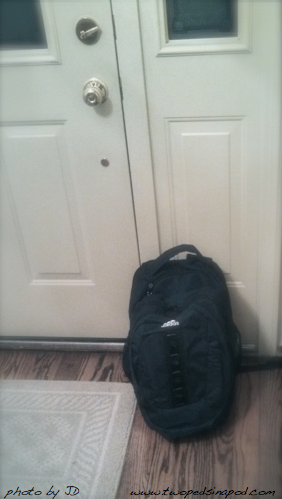When a peer dies: How to help your grieving teen
 Three of my son’s high school classmates died in a tragic car accident just before school started this year. As parents, many of us may have lost someone close to us, and we know from our experience that over time, the acute pain of loss decreases as we ultimately derive strength and joy from our memories of our loved one instead of experiencing only sadness and pain over their loss. Our hearts ache watching our kids experience death first hand, often for the first time. But teens need time to experience this transition for themselves. Telling them “it will get better” will not help them.
Three of my son’s high school classmates died in a tragic car accident just before school started this year. As parents, many of us may have lost someone close to us, and we know from our experience that over time, the acute pain of loss decreases as we ultimately derive strength and joy from our memories of our loved one instead of experiencing only sadness and pain over their loss. Our hearts ache watching our kids experience death first hand, often for the first time. But teens need time to experience this transition for themselves. Telling them “it will get better” will not help them.
If you are parents of a grieving teen who has lost a friend or classmate, following are some things that you can do to help:
• Offer to be available, to listen, or to find someone outside your family for your teen to talk to if he wants. Do not insist that your teen talks about his feelings.
• Refrain from lecturing– it does not help your teen at this time to hear things like “THAT’S why we won’t let you drive with young drivers.” She’s already figuring this out for herself.
• Allow her to talk or gather with friends during the daytime.
• Go back to basics: make sure your teen eats, drinks and sleeps. Enforce bedtime. Turn off phones and computers by a bedtime that allows your teen to get at least 8-9 hours of sleep. Do not allow your teen to text late into the night or to continue talking to friends late into the night, even if this means insisting that YOU take his phone for the evening. Be cautious of sleepovers, which only cause sleep deprivation, leading to exhaustion and more difficulty handling strong emotions.
• Offer to go for a walk with your teen. Exercise is helpful and encourages dialogue.
• Allow your teen to grieve by attend viewings and funerals. However, do not mandate that she goes. Giving her an idea of what to expect (e.g., there may be an open casket, here are some things you can say to the family) may help ease any discomfort. Offer to go with your teen, but again, don’t insist on going.
• Help your teen to do something constructive to help other survivors. Send a condolence card to the deceased friend’s parents that includes an anecdote of how their teen helped your teen, or of how his deceased friend encouraged, made him laugh, or inspired him. Suggest that your teen cook a meal for the grieving family, mow their lawn, run some errand, or to babysit a younger sibling of the deceased.
• Utilize community resources. School guidance counselors provide a wealth of information and support.
Your teen may experience intermittent, intense sadness even months or years after a tragedy, but as time goes by more time should pass between feelings of sadness. Kids who lose close friends learn, over time, to live with their grief. Continue to acknowledge your teen’s feelings of loss and continue to be available for your teen. Initial depression usually fades into sadness in a month’s time.
It is normal for the death of a classmate to trigger, for the first time, your teen’s contemplation of his own mortality. It is normal for him to express fears of his own death.
Normal grief behaviors include:
• Crying
• Talking about their loss
• Wanting to talk to other friends
• Spending more time with friends
• Some might want to be alone with their grief.
• Some kids might want to busy themselves with sports, reading, etc, in order to distract themselves from their grief.
• Temporary altered appetite and difficulty sleeping.
• Temporary difficulty with concentrating on schoolwork.
Abnormal grief behaviors:
• Inability to eat or sleep
• Gaining or losing more than a couple of pounds
• Inability to stop crying
• Refusing to attend school
• Failing classes
• Using alcohol or other drugs to cope with sadness
• Withdrawal from things your teen used to take pleasure in such as sports, hobbies, music, friends, or family.
• Preoccupation with death
• Suicidal thoughts, wishes, or plans
If you see any of these abnormal signs, or you are concerned about how your teen is coping, consult with your pediatrician or a psychologist. For more signs of clinical depression in children, please see our post on child and teenage depression. Also know that the National Suicide Prevention Lifeline is 800-273-8255.
Julie Kardos, MD and Naline Lai, MD
©2014 Two Peds in a Pod®